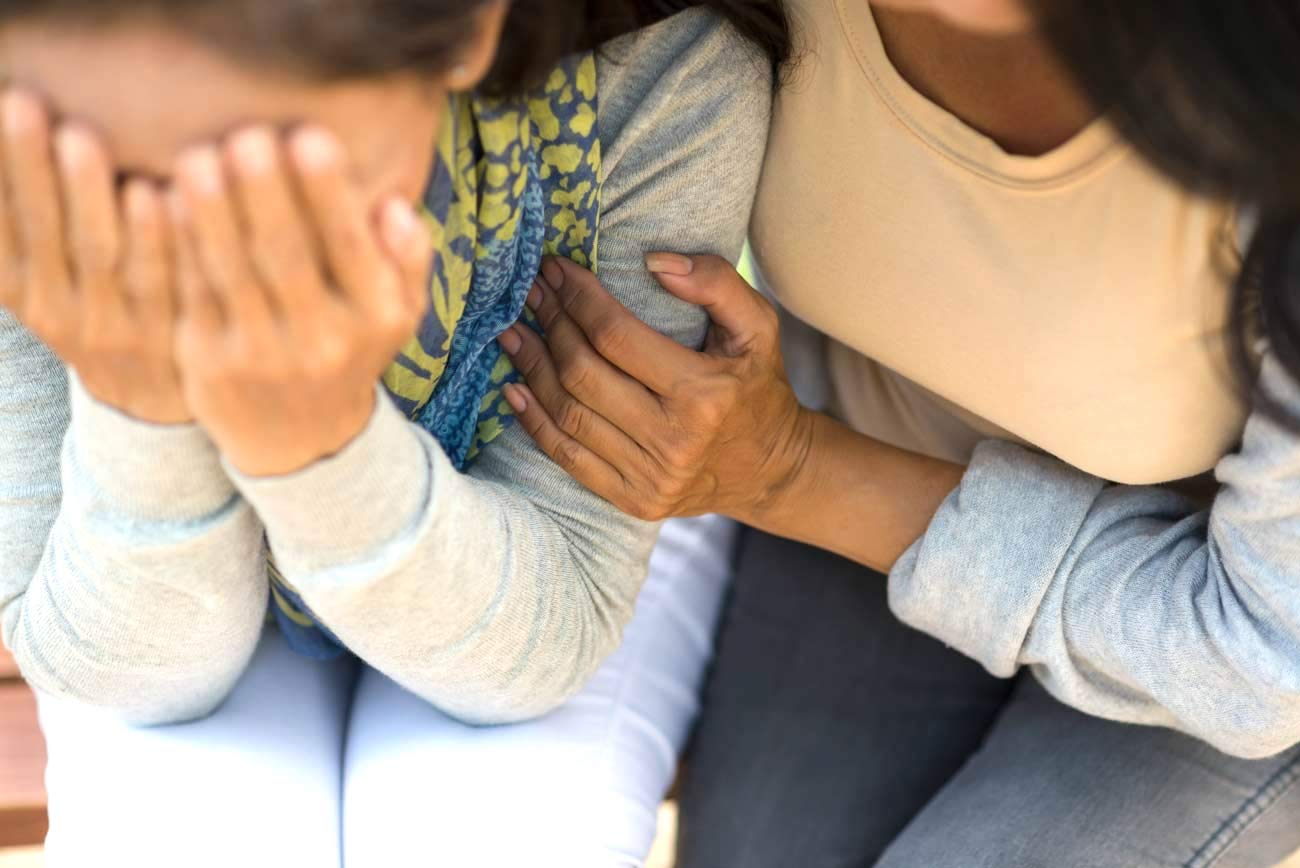
Depression: How To Help Someone With Depression
Are you worried about a friend or relative’s mental health? Do you think they may be showing signs of depression? Here, we a look at how to help someone with depression and how to spot the signs.
Mental health can affect not only how we act in social situations, but how we deal with life stresses, relate to others, and the choices that we make. Being mentally well enables us to live our lives to the fullest, feel good about ourselves, make good life choices and have healthy and satisfying relationships with others, so you can see how important it is.
Understanding Depression
One of the first things you can do is to read up on depression to understand how it affects a person. With one in five people experiencing depression at some point in their lives, it is so important to understand depression – perhaps now more than ever before.
Dr Rafael Euba, Consultant Psychiatrist at The London Psychiatry Centre, says: “Depression isn’t a phase or something you can just ‘snap out of’, and using those kinds of phrases can be really quite detrimental to someone suffering with this illness. Although not visible, depression is just as a real as a physical injury, and is a serious condition that can have life changing consequences.”
Depression can impact all areas of a person’s life: Emotional, social and psychological wellbeing. Depression makes it difficult to connect and often makes sufferers feel like they want to withdraw.
Remember that it’s nothing personal: Your friend may be acting differently towards you, saying hurtful things and lashing out but it is not on purpose – it’s the illness talking.
You won’t be able to fix it: As difficult as it is seeing a friend going through a tough time, you need to realise that there is no simple fix, and the desire to recover needs to be driven by the person who is suffering with depression.
What Causes Depression?
“The cause of depression is complex and there is no one simple answer. It can occur as a result of any combination of factors, and it’s not always possible to identify the cause. However, depression often occurs after persistent long term stress which can be triggered by an event, or by a combination of life events.” explains Dr Euba.
Long term difficulties in life can include finding it difficult to find a job, being unemployed for a period of time, prolonged stress at work or at home, mental abuse, physical abuse, and long periods of loneliness.
It is also thought that depression can be caused by an imbalance of chemicals in the brain, though there are various factors at play like vulnerability, medical issues, and life situations.
Personal factors can also contribute to depression, and can range from being predisposed to depression (if it runs in the family, your friend may be more vulnerable to it), drink and drugs, chronic illness, giving birth, and being overly negative and critical may also contribute.
Depression Symptoms: Signs of Depression To look For
There are some common signs of depression that you may have already noticed in your friend:
- They may seem withdrawn, and show no interest in doing things they once enjoyed
- They may be struggling to complete tasks at work
- You may have noticed them finding it difficult to concentrate
- You may have seen them drinking more or taking drugs
- They may have gained or lost weight
- They may seem tired all the time
- They may be more irritable and intolerant of others
- You may have noticed they have a bleaker outlook on life than usual
How To Talk To Someone About Depression
Talking to someone you think may be depressed can be tricky, there’s no doubt about that. They may not even know they have depression. It can be a very isolating illness, and often, those suffering with it may not feel like they can talk about it. Whilst you can’t fix depression for your friend you can be there for them and offer support.
Not sure where to start? “You’ve not seemed like yourself for a while – is everything OK?” Explain why you are concerned and let your friend know you’re there if they want to have a conversation about it. Sometimes just being there is the most important thing you can do.
Advice For Helping A Friend With Depression
There are many things you can to do to help your friend with depression feel supported:
- Listen
- Be compassionate
- Don’t offer advice
- Help them to feel understood
- Ask how you can support them
- Maintain a caring relationship
- Stay connected
- Compliment them (people who are depressed often have low self esteem)
- Be patient
- Be available to talk to and be supportive
- Don’t judge or shame them
- Learn more about depression
What Treatment Is Available For Depression?
Dr Euba says: “There are a number of approaches to treatment for depression. As depression is so complex, and no two people are the same, different treatments – and combinations of treatments – work for different people.”
At The London Psychiatry Centre every patient has a treatment plan tailored to them.
Antidepressants: There are many different types of antidepressants, but SSRIs are some of the more commonly prescribed ones. They work to regulate the ‘feel good’ chemicals in the brain by keeping the serotonin in your system for longer. However, results vary from person to person, and antidepressants often have better, longer-lasting results when combined with psychotherapy.
Psychotherapy: There are different types of talking therapies which including cognitive behavioural therapy (CBT). Used to identify unhelpful behaviour patterns and release negative feelings, CBT can really benefit patients. Talking therapies can help patients to build positive strategies. Unfortunately, there is still a percentage of people who do not respond to antidepressants or talking therapies.
Repetitive Transcranial Magnetic Stimulation (rTMS): rTMS is a depression treatment for treatment resistant depression – for those who do not respond to antidepressants or talking therapies. This groundbreaking treatment for depression is highly effective and drug-free. rTMS works by using magnetic energy to stimulate the area of the brain that regulates mood. The London Psychiatry Centre is a pioneer of rTMS in the UK; we have the highest remission rate for TRD of any clinic in the UK – 60% of women and 69% of men who have been treated at The London Psychiatry Centre have recovered.
To find out more about what help we can provide, or to book a consultation please don’t hesitate to speak to a member of our administration team by calling 020 7580 4224.


